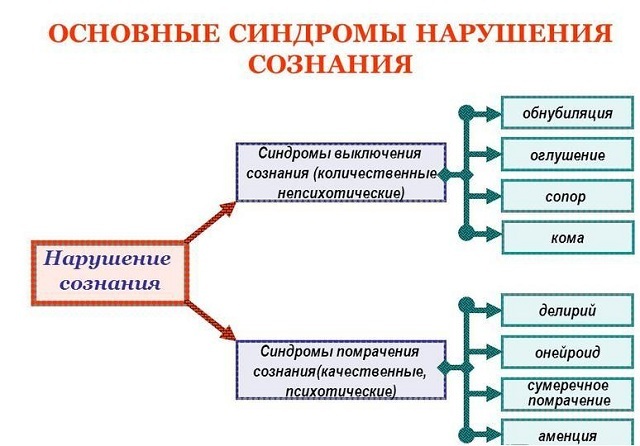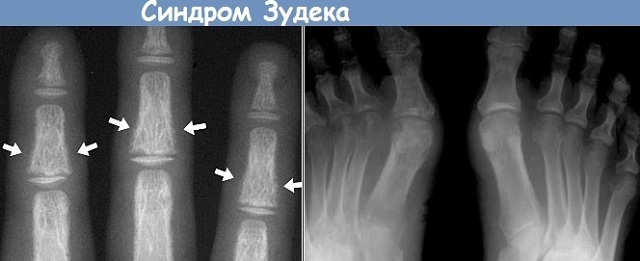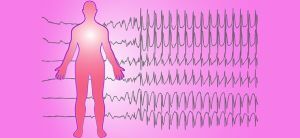 Epileptiform syndrome is a type of paroxysmal disorders of consciousness( seizures) that suddenly start and end unexpectedly, which are an organic process in the brain.
Epileptiform syndrome is a type of paroxysmal disorders of consciousness( seizures) that suddenly start and end unexpectedly, which are an organic process in the brain.
Pathology can develop against a background of various diseases, including as a result:
- tuberculosis;
- abscess;
- for tumors;
- for disorders of cerebral circulation;
- of arachnoiditis;
- of parasitic diseases;
- of meningoencephalitis;
- as a consequence of perinatal brain lesions;
- for neuroinfections;
- for injuries.
Various manifestations of seizures indicate places of brain damage and indicate the process of weighting the underlying disease.
Epileptiform syndrome may have manifestations:
- psychic paroxysms : depersonalization, derealization, twilight states, dysphoria, onyroid;
- combination of mental with generalized and focal paroxysms .
Pathophysiology and the causes of the
process Epileptiform syndrome, unlike seizures of an epileptic nature, has no characteristic personality changes. In many ways 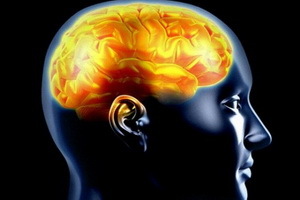 manifestations of the syndrome depend on the development of the current underlying disease.
manifestations of the syndrome depend on the development of the current underlying disease.
When cured of the main disease, the condition can be transient( as an example, intoxication of the body during alcohol poisoning, traumatic brain injury).
Causes of the appearance of the syndrome:
- of the different nature of the developmental defects of the central nervous system;
- is a genetic disorder of the CNS;
- congenital malformations of the central nervous system;
- birth trauma, hypoxia of newborns( with resuscitation);
- meningitis, encephalitis, granulomas, abscesses;
- toxic effects on the body: drugs( their reception or cancellation), inorganic substances( lead, mercury, carbon monoxide), organic substances( alcohols, aldehydes);
- trauma of the brain;
- problems with the circulation of blood in the brain;
- metabolic disorders;
- tumors;
- hereditary diseases: hereditary epilepsy;
- fever;
- cryptogenic epilepsy;
- is a degenerative disease of the brain.
How it looks in the life of
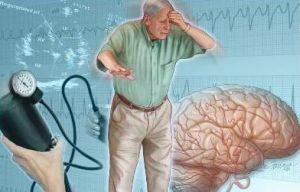 In newborns, the epileptiform syndrome can manifest itself as an "aged person", that is, the child commits convulsive paroxysms reminiscent of movements not inherent in his age, they can also appear as continuation of postnatal seizures, imitation of unconditioned reflexes.
In newborns, the epileptiform syndrome can manifest itself as an "aged person", that is, the child commits convulsive paroxysms reminiscent of movements not inherent in his age, they can also appear as continuation of postnatal seizures, imitation of unconditioned reflexes.
In adults, the syndrome manifests itself as hysterical cramps, fears, mood imbalances and depression. Also, the form of the syndrome can be convulsive fainting, arising from problems of normal circulation of blood in the brain. Fainting accompanied by pallor of the skin, a drop in blood pressure.
Epileptiform syndrome must be distinguished from epilepsy.
So, the syndrome is not inherent:
- pallor of the skin when seizure;
- biting the tongue;
- inability to retain urine;
- specific for epilepsy personality changes.

